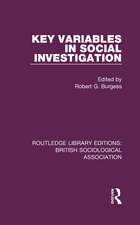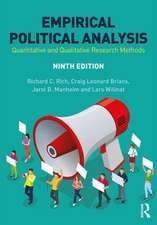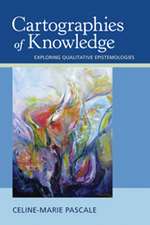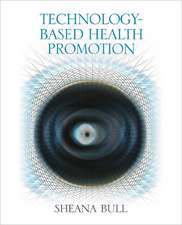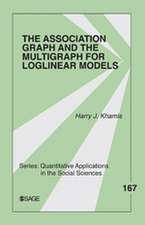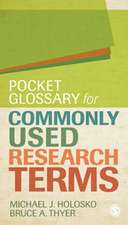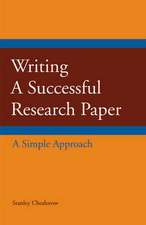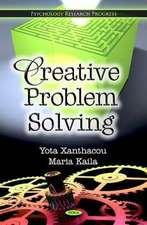Crafting Phenomenological Research
Autor Mark D. Vagleen Limba Engleză Paperback – 4 apr 2018
Joining leading contemporary practitioners, such as van Manen, Giorgi, and Dahlberg, Vagle walks the reader through multiple approaches to designing and implementing phenomenological research, including his post-intentional phenomenology, which incorporates elements of post-structural thinking into traditional methods. Vagle provides readers with methodological tools to build their own phenomenological study, addressing such issues as research design, data gathering and analysis, and writing.
Replete with exercises for students, resources for further research, and examples of completed phenomenological studies, this book affords the instructor an easy entrée into introducing phenomenology into courses on qualitative research, social theory, or educational research.
New to this edition:
- An additional first chapter that outlines the historical background of phenomenological philosophy and methodology.
- A feature called "snapshots" that provides brief commentary and/or examples to illustrate concepts and ideas.
- Updated "resource digs" providing more examples, with the addition of more international resources.
| Toate formatele și edițiile | Preț | Express |
|---|---|---|
| Paperback (2) | 303.42 lei 3-5 săpt. | +21.01 lei 7-11 zile |
| Taylor & Francis – 9 oct 2024 | 303.42 lei 3-5 săpt. | +21.01 lei 7-11 zile |
| Taylor & Francis – 4 apr 2018 | 316.50 lei 6-8 săpt. | |
| Hardback (2) | 949.91 lei 6-8 săpt. | |
| Taylor & Francis – 9 oct 2024 | 949.91 lei 6-8 săpt. | |
| Taylor & Francis – 9 apr 2018 | 999.46 lei 6-8 săpt. |
Preț: 316.50 lei
Nou
Puncte Express: 475
Preț estimativ în valută:
60.57€ • 62.49$ • 51.26£
60.57€ • 62.49$ • 51.26£
Carte tipărită la comandă
Livrare economică 04-18 martie
Preluare comenzi: 021 569.72.76
Specificații
ISBN-13: 9781138042667
ISBN-10: 1138042668
Pagini: 214
Ilustrații: 8 Line drawings, black and white; 4 Halftones, black and white; 12 Illustrations, black and white
Dimensiuni: 152 x 229 x 15 mm
Greutate: 0.29 kg
Ediția:2 ed
Editura: Taylor & Francis
Colecția Routledge
Locul publicării:Oxford, United Kingdom
ISBN-10: 1138042668
Pagini: 214
Ilustrații: 8 Line drawings, black and white; 4 Halftones, black and white; 12 Illustrations, black and white
Dimensiuni: 152 x 229 x 15 mm
Greutate: 0.29 kg
Ediția:2 ed
Editura: Taylor & Francis
Colecția Routledge
Locul publicării:Oxford, United Kingdom
Public țintă
Postgraduate, Professional, and UndergraduateCuprins
Acknowledgments and Credits
Introduction
Part I. Exploring Philosophical Concepts and Notions in Phenomenology
Chapter 1. Phenomenology—A Historical Background
Chapter 2. What Is a Phenomenon in Phenomenology?
Chapter 3. What Is Intentionality and Why Is It Important?
Chapter 4. The Importance of Prepositions
Resource Dig (Section 1)
Part II. Phenomenological Research Approaches
Chapter 5. Possible Methodological Approaches
Chapter 6. Phenomenological Research Methodology: Research Design Considerations
Chapter 7. Gathering Phenomenological Material
Chapter 8. Analyzing Phenomenological Material
Resource Dig (Section 2)
Part III. A Post-Intentional Approach to Phenomenological Research
Chapter 9. Post-Intentional Phenomenology
Chapter 10. Post-Intentional Methodology
Chapter 11. Post-Intentional Phenomenology in Practice
Resource Dig (Section 3)
Chapter 12. Epilogue
Introduction
Part I. Exploring Philosophical Concepts and Notions in Phenomenology
Chapter 1. Phenomenology—A Historical Background
Chapter 2. What Is a Phenomenon in Phenomenology?
Chapter 3. What Is Intentionality and Why Is It Important?
Chapter 4. The Importance of Prepositions
Resource Dig (Section 1)
Part II. Phenomenological Research Approaches
Chapter 5. Possible Methodological Approaches
Chapter 6. Phenomenological Research Methodology: Research Design Considerations
Chapter 7. Gathering Phenomenological Material
Chapter 8. Analyzing Phenomenological Material
Resource Dig (Section 2)
Part III. A Post-Intentional Approach to Phenomenological Research
Chapter 9. Post-Intentional Phenomenology
Chapter 10. Post-Intentional Methodology
Chapter 11. Post-Intentional Phenomenology in Practice
Resource Dig (Section 3)
Chapter 12. Epilogue
Notă biografică
Mark D. Vagle is Professor of Curriculum and Instruction at the University of Minnesota, USA. He has written extensively on phenomenological research in journals such as Qualitative Inquiry, The International Journal of Qualitative Studies in Education, The Journal of Curriculum Studies, Cultural Studies - Critical Methodologies, Field Methods, and Teaching Education, and regularly teaches university courses and professional workshops on the subject. Currently, Vagle is using his conception of post-intentional phenomenology to critically examine various ways in which issues related to social class take concrete (lived) shape in the curriculum and pedagogies of elementary education.
Recenzii
Mark Vagle’s book is sure to be the go-to source for those who want to do phenomenological research in the social sciences. He not only explains the genealogy of phenomenological theories but also provides hands-on, practical examples of how they permeate a life, how they take hold in one’s bones, how they create a new way of being with the world. Vagle’s approach is joyous but also careful, critical, and contemporary as he extends phenomenology, opening it up to new imaginings demanded by 21st century inquiry.
Elizabeth A. St.Pierre, University of Georgia
The gift that phenomenology offers us is vitality, a way of knowing our world that acknowledges the emotions, histories, and interests that animate our lives. Mark Vagle brings that lifefullness right into his text. His scholarship serves his interest in sharing the possibilities of this work with us, and so he builds a bridge between its foundations, their interpretations, and our understanding, and he interprets their use and application in educational research with imagination. Reconciling description and interpretation in his approach, Vagle’s phenomenology is animated and accessible without being simplified. It is a wonderful achievement and a significant contribution to the practice of phenomenological research in education.
Madeleine R. Grumet, Professor of Education and Communication Studies, University of North Carolina, Chapel Hill
Having edited a major qualitative journal for over 15 years, I know many qualitative researchers claim to be using phenomenology. Unfortunately, most are not and don’t even really understand it. Mark Vagle does, and in this volume he sets out—in a warm, personable manner—to help others to understand it through careful explanations and numerous examples. Stop claiming what you don’t know and read this book. If you do, you could actually learn to be a phenomenologist.
James Joseph “Jim” Scheurich, Editor, International Journal of Qualitative Studies in Education
Elizabeth A. St.Pierre, University of Georgia
The gift that phenomenology offers us is vitality, a way of knowing our world that acknowledges the emotions, histories, and interests that animate our lives. Mark Vagle brings that lifefullness right into his text. His scholarship serves his interest in sharing the possibilities of this work with us, and so he builds a bridge between its foundations, their interpretations, and our understanding, and he interprets their use and application in educational research with imagination. Reconciling description and interpretation in his approach, Vagle’s phenomenology is animated and accessible without being simplified. It is a wonderful achievement and a significant contribution to the practice of phenomenological research in education.
Madeleine R. Grumet, Professor of Education and Communication Studies, University of North Carolina, Chapel Hill
Having edited a major qualitative journal for over 15 years, I know many qualitative researchers claim to be using phenomenology. Unfortunately, most are not and don’t even really understand it. Mark Vagle does, and in this volume he sets out—in a warm, personable manner—to help others to understand it through careful explanations and numerous examples. Stop claiming what you don’t know and read this book. If you do, you could actually learn to be a phenomenologist.
James Joseph “Jim” Scheurich, Editor, International Journal of Qualitative Studies in Education
Descriere
An accessible, concise introduction to phenomenological research in education and social sciences. Mark Vagle outlines the key principles for conducting this research from leading contemporary practitioners, such as van Manen, Giorgi, and Dahlberg.


